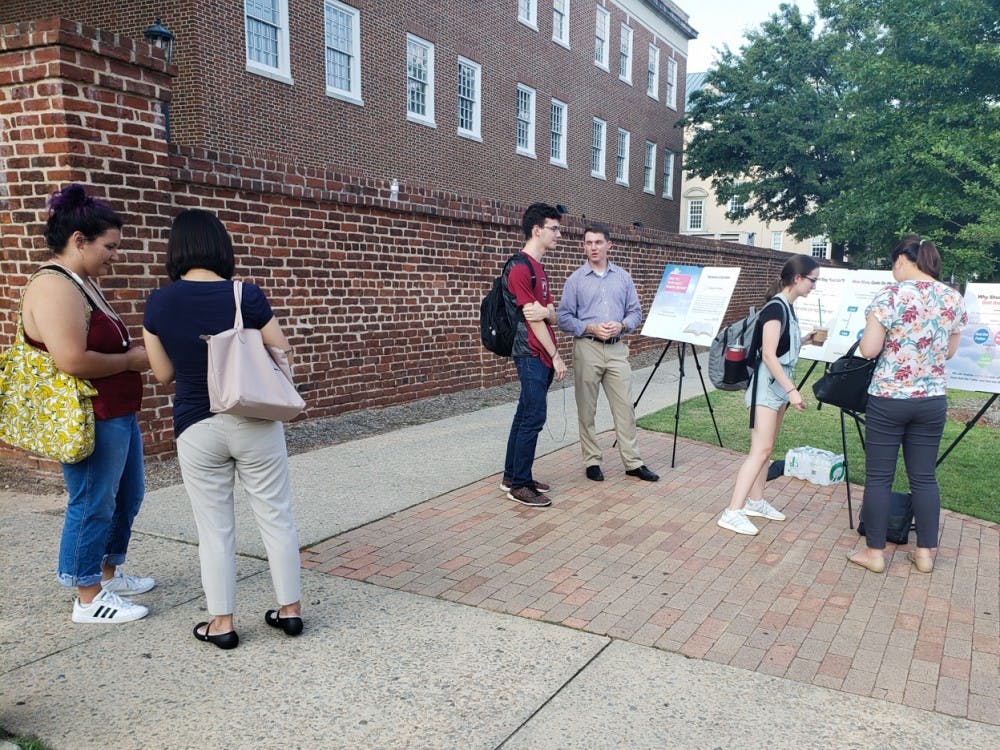Claire Monterroyo was sitting in front of the Horseshoe on Sumter Street waiting for a bus to take her to Greek Village when she was approached by a woman she didn't know.
"She said the words 'God the Mother.' I freaked out because I am in a sorority and you hear this stuff all the time," the third-year public health student said.
God the Mother is a Christian church linked to the World Mission Society Church of God (WMSCOG), founded in South Korea in 1964. The church believes Ahn Sahng-hong, a famous South Korean minister, was the second coming of Jesus Christ. They also believe that God the Mother, or the female image of God, is Jang Gil-ja, another famous South Korean figure.
On social media, the church has been accused of human trafficking, but this claim has not been substantiated. USCPD Deputy Scott Prill investigated a WMSCOG church congregation near campus and found no link to human trafficking.
"There's no evidence supporting this claim of sex trafficking, so we've been trying to get that message out," Prill said.
Though there have been some former members who characterized the religious sect as cult-like, Prill said they found nothing criminal.
"We have heard that, but we haven't heard of anything criminal," Prill said. "We're very cognizant of the First Amendment and people's freedom of religion and we don't want to curtail that."
Monterroyo said she heard other women talk about being approached at night, but she was approached at about 10:45 a.m.
Leonardo Tanaka is a member of the local WMSCOG congregation that is actively looking to build a permanent location in the Midlands. Tanaka said WMSCOG members are encouraged to approach students on campus or walking around Columbia, and said he could see how approaching students at night could be off-putting, but said it is not with negative intentions.
Tanaka spoke to USCPD and denied both human trafficking claims and the claims comparing the church to a cult.
"It's not just defaming our church," Tanaka said. "Some people even threaten our members."
Tanaka said that after a day of preaching or spreading word on the street corners around campus, members might approach pedestrians on the way to their cars.
"Sometimes we see people on the way, you know, that could be probably the cases, but usually when we do engage in this, we try to do it in pretty open, safe-to-the-eye areas," Tanaka said.
Tanaka said the church is also actively trying to establish a campus organization so it can talk about its religious views with students and clear its name publicly.
"We just want to let people know that we are not really linked with any of these false accusations," Tanaka said.
Sloan Wilson, a third-year political science and women and gender studies student, is a part of the International Justice Mission, a student organization which aims to spread awareness of modern day slavery. Although USCPD said the church was incorrectly linked to human trafficking, Wilson said USC and Columbia still have issues with human trafficking.
Wilson said there are five ways human traffickers try to recruit victims: personal social networks, through romantic relationships, online ads on sites such as Craigslist or Backpage (prior to its FBI investigation resulting in its removal from the web), street approaches offering economic security or a modeling deal and, finally, using trafficking victims to help find more victims.
She said the closest example of human trafficking to USC is an illicit massage parlor.
"There are actually women who are being trafficked to perform sex acts and that has been identified by law enforcement as the closest establishment business of human trafficking," Wilson said.
Wilson said traffickers typically look for people they perceive as vulnerable, so she recommends students be aware the various recruitment methods and understand when they can be seen as vulnerable.
"There have been instances at college campuses of people that have been trafficked all over the states, and being able to look out for these signs is really important," Wilson said.

